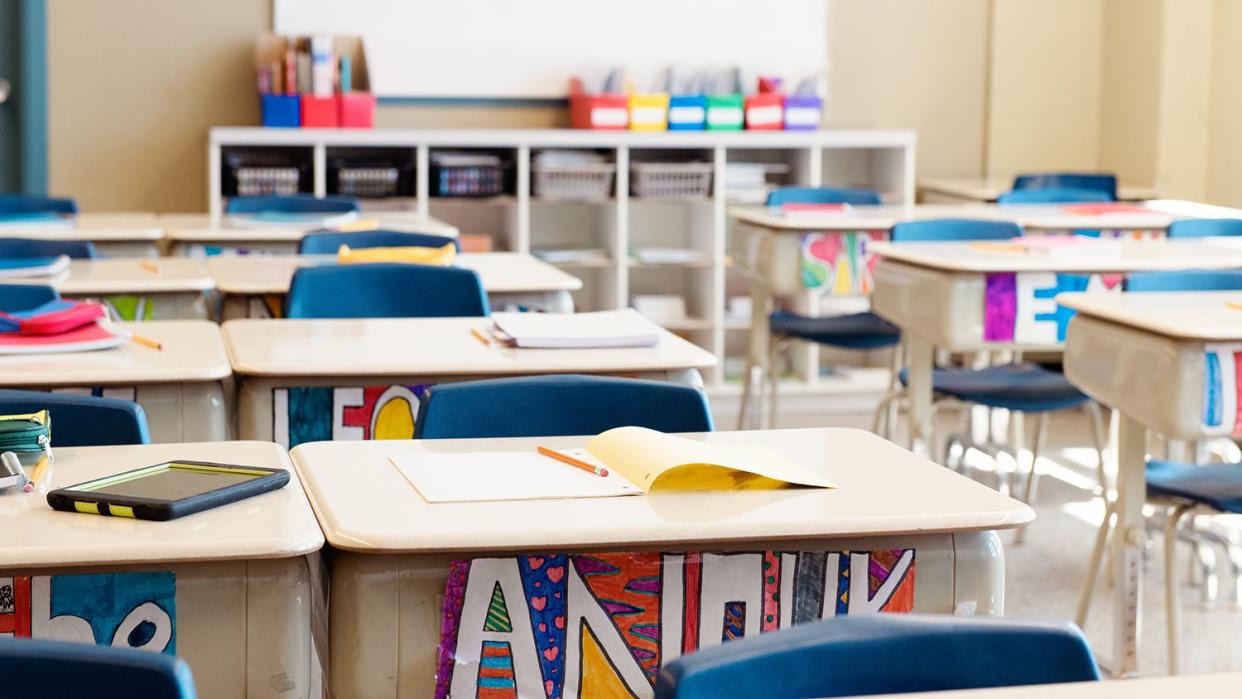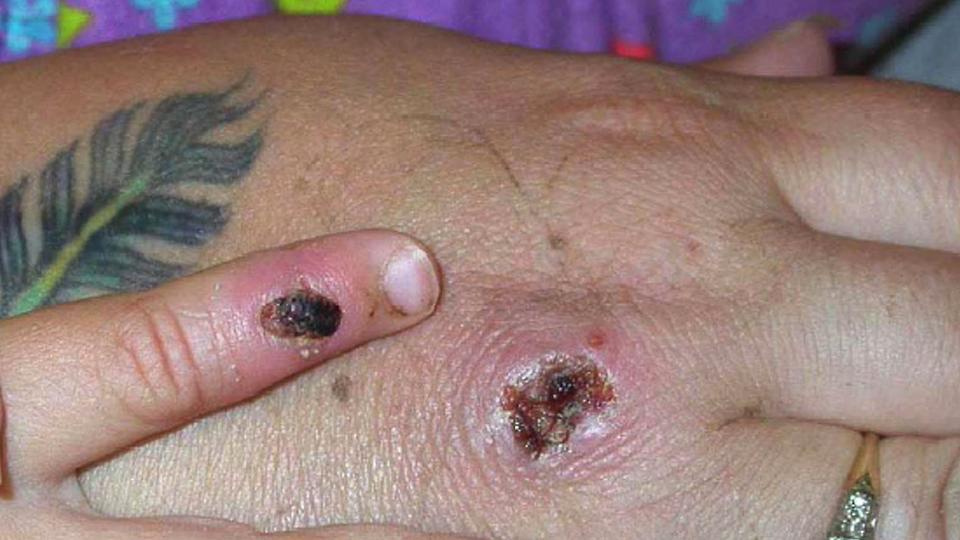Health Expert Explains Children's Risk for Monkeypox Infection as School Begins

- Oops!Something went wrong.Please try again later.
Getty
The monkeypox outbreak is continuing to spread — with cases surpassing 9,400 in the United States — and last week, a daycare worker in Illinois tested positive for the virus, potentially exposing children.
Dr. Michael Chang, infectious diseases physician at UTHealth Houston and Children's Memorial Hermann Hospital, spoke to PEOPLE about how much children are at risk to contract the virus, and whether schools and childcare facilities could become a hotspot.
"Historically speaking, there were more monkeypox cases documented in kids in endemic countries — where monkeypox circulates regularly — than adults. But with this current outbreak, that doesn't seem to be the case. Pediatric patients are very rare so far of all the cases that have been documented. So I wouldn't consider them to be at higher risk of contracting the disease but they can definitely get infected."

Courtesy of CDC/Getty Images Monkeypox lesions
Monkeypox spreads primarily through skin-to-skin contact, direct contact with bodily fluids or lesions, and can also be transmitted by respiratory droplets. While that might sound familiar to COVID-19, monkeypox does not spread as easily as the coronavirus.
"It's potentially able to spread through respiratory droplets, but you have to have really prolonged face to face contact with an infected person ... where you'd have to spend all day in the same area," Chang explains. "There's been five confirmed pediatric cases in the United States. Obviously, for privacy issues we don't know all the details about those cases. But for pediatric patients, it's mostly prolonged face to face indoor contact, essentially hugging and kissing, which you would do in a normal household family unit with your kids. So that's important to keep in mind. Again, the risk is very low."
"For back to school, I think there's still very, very, very low risk," he says. "One, the probability of any one child going to school with active monkeypox is very low. And two, the amount of exposure you would need for it to spread within a school is probably… you're probably never going to achieve that."
Fortunately, children who do contract monkeypox recover really well without any treatment and complications are rare, Chang says, while noting that most data comes from countries where the virus is endemic, or regularly found in the area.
He adds that one complication kids could face with monkeypox is bacterial infection from the lesions. "The lesions can be itchy or painful and so kids can sometimes pick at the pox lesions, and then they can get a bacterial infection on top of having the monkeypox," Chang says.
RELATED: Illinois Daycare Worker Tests Positive for Monkeypox, Children Potentially Exposed
Monkeypox can be prevented with the Jynneos smallpox vaccine, which can also be effective after a person is infected, according to the Centers for Disease Control and Prevention. Along with the vaccine, medical professionals have also used an antiviral treatment called tecovirimat (TPOXX), to treat monkeypox in patients who are more likely to get severely ill.
Health officials recommend that any child or adult who has been exposed to monkeypox get vaccinated. The CDC suggests the vaccines be administered within four days of exposure. If it's administered between four and 14 days after the date of exposure, the vaccine might reduce symptoms but may not prevent the virus.
However, there is a low supply of the vaccine and the Biden Administration is working to expand distribution. Anyone who has been exposed to monkeypox or suspects they have contracted the virus should isolate and contact their healthcare provider for details about receiving a dose or treatments.
"Children can get the Jynneos vaccine if they are in a high risk exposure situation. It's already been given to some pediatric patients in the United United States. The vaccine is probably at least 85% effective at preventing infection for maybe the first one to three years. So it's an extremely effective vaccine. And if you can identify high risk contacts of infected people quickly enough, you can actually stop the chain of transmission with vaccination," Chang says. "[TPOXX] is reserved for patients with severe illness or at risk for severe illness, which pediatrics, they don't really fall into risk for severe illness necessarily."
Chang says that though he doesn't think children are at high risk for monkeypox, parents can take proper steps to help with prevention.
"I think the key for prevention and control is the same as it was for COVID, which is if your child is sick, if they have fever, if they have swollen lymph nodes, and if they have respiratory symptoms, you should try to keep your kid at home," he tells PEOPLE. "And then for schools, and daycare providers it's the same thing, please talk to your parents and say, look, if your kids are sick, it would be best if they could stay at home."
Chang adds, "Please be sure your children are up to date on all the vaccines that they're eligible for, like chickenpox and COVID-19, so that you can minimize any concern about other types of infections going forward."

